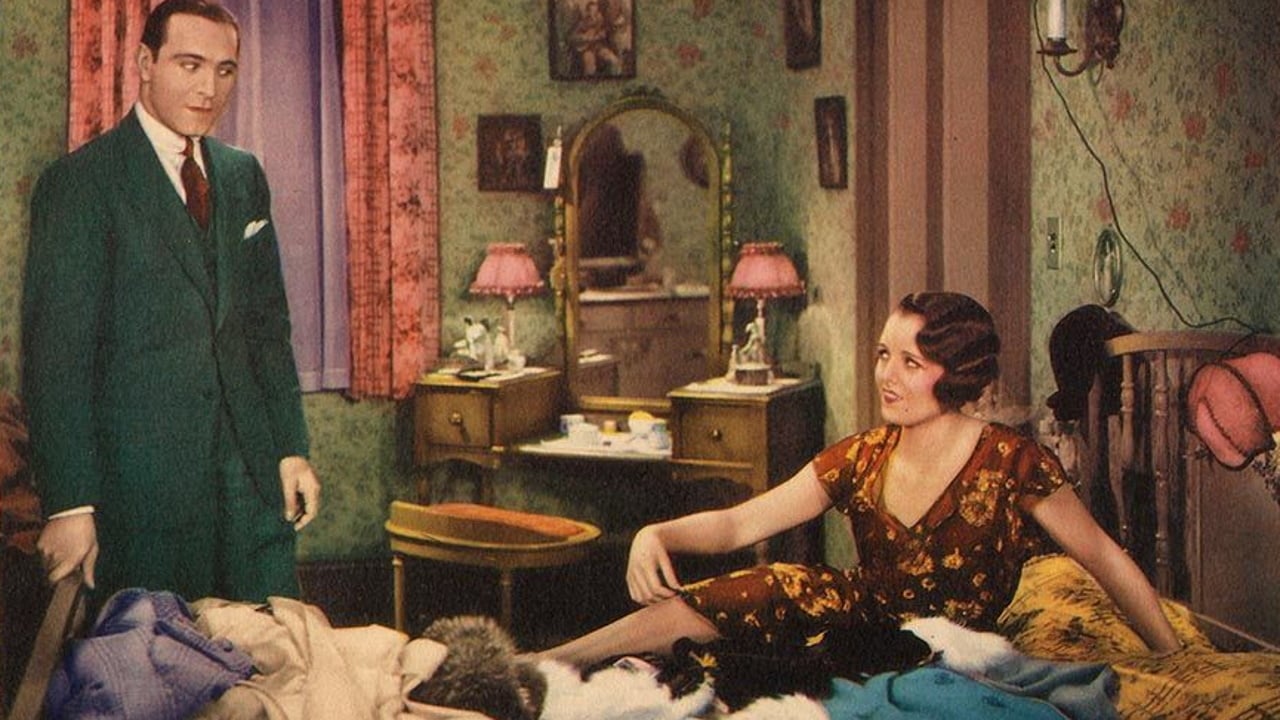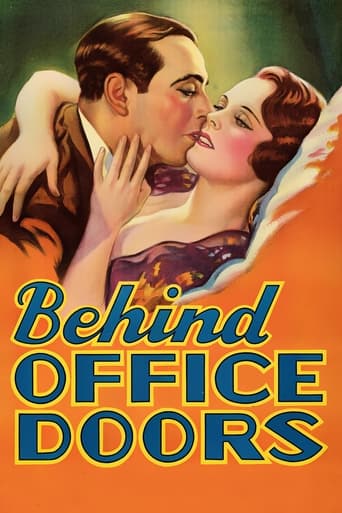Bluebell Alcock
Ok... Let's be honest. It cannot be the best movie but is quite enjoyable. The movie has the potential to develop a great plot for future movies
Micah Lloyd
Excellent characters with emotional depth. My wife, daughter and granddaughter all enjoyed it...and me, too! Very good movie! You won't be disappointed.
Lidia Draper
Great example of an old-fashioned, pure-at-heart escapist event movie that doesn't pretend to be anything that it's not and has boat loads of fun being its own ludicrous self.
Skyler
Great movie. Not sure what people expected but I found it highly entertaining.
mark.waltz
Working hard for aging boss Charles Sellon (who is too old to notice the legs crossed as she takes dictation), Mary Astor is devoted to her job and in love with second in charge Robert Ames. He barely notices her so she accepts the affections of suave Ricardo Cortez who unfortunately is married (although separated for years) but not willing to try to get a divorce. When life-threatening ailments cause Sellon to suddenly retire, Astor and Ames begin to spend more time together, and she is disturbed by his hiring a dim-witted assistant for her. Astor proves she is "Johnny on the spot" (like Julie Andrews' Millie) in keeping the office and Ames' home in order, so when Ames suddenly announces his engagement to wealthy socialite Catherine Dale Owen, Astor is naturally hurt and decides to resign. But the lack of finding a good replacement after firing the incompetent Edna Murphy makes Ames desperate, and when Mary finds out, she makes one last effort to win him over. But is falling in love with the boss worth it? In depression era, pre-code times it was, and more often than not, unless their boss was Clarence Wilson, the heroine did.It's Mary Astor's film all the way, playing a very noble character who still won't put up with the dizzy antics of the ridiculous Murphy who storms into boss Ames' office against Astor's orders on her very first day. When she throws her newly purchased negligee in Astor's face, you might think that something like this could never happen. Certainly, in this politically correct, office politics rule era, it would be unthinkable, but the dark days of the depression saw some young women using what they had to get ahead. Remember that the early 1930's were pre-code, delightfully un-P.C. with female characters telling other females things such as "As long as there are streets, you'll have a job!" Murphy is even dumber than the character of Hedy LaRue in "How to Succeed in Business Without Really Trying", but in her case, it's How to succeed in the boss's bedroom without really stripping".Frankly, I didn't see any qualities in Ames which would make sense for Mary Astor to fall in love with him. He's a drunken bore, prone to office hang-overs, even after coming in late, and while Cortez is married, it is apparent that after a time, he would divorce his wife to marry Astor. Sellon, a delightful old character actor, is given several zippy scenes, while Owen, as the seemingly sweet daughter of the firm's banking representative, shows claws when she realizes what she's up against with Astor. Kitty Kelly (not related to the notorious tell-all biographer) also adds spark as Mary's free-spirited pal who throws a great "truth or dare" party where Astor and Cortez are thrown together in a rather risqué bedroom scene where they actually sit on the bed. This is a fun pre-code drama which if you take away the whole personal business in the office business world, you can enjoy for an era of political incorrectness and personal sexual freedom that doesn't exist anymore.
wes-connors
At a New York party, bright and attractive secretary Mary Astor (as Mary Linden) has fun with wealthy and attractive Ricardo Cortez (as Ronnie Wales). The two seem like an ideal couple, but Mr. Cortez is married and can't get a divorce. Besides, Ms. Astor has set her sights on playboy businessman Robert Ames (as James "Jim" Duneen). When her boss retires, Astor recommends Mr. Ames as replacement. Ames is up for the job as head of the paper distributing company where they work. Astor continues as the president's secretary and Ames shows little interest in her sexually. Instead, he beds trampy job applicant Edna Murphy (as Daisy Presby) and proposes to snobby heiress Catherine Dale Owen (as Ellen Robinson). Astor must consider drastic actions to win her man. "Behind Office Doors" is a dated, but gamely presented early talking picture; however, this doesn't combine in a way that makes it very engaging.**** Behind Office Doors (3/15/31) Melville Brown ~ Mary Astor, Robert Ames, Ricardo Cortez, Edna Murphy
Seltzer
There's a good running bit about the price tag of a silk negligee. The bimbo in the office shows off the bargain she got for $22 (closeup of tag). Later, Mary Astor finds the tag in the boss's bedroom (proof that bimbo slept with him). Still later, Mary Astor is about to have an affair with Ricardo Cortez, looks at the price tag of HER silk negligee ($14) and is reminded of how disgusted she was about the bimbo, as well as the fact that she's spent $8 less than the "most obvious" woman she's ever met. It sounds an obvious morality turn, but it was well done. The film would be stronger if Robert Ames' character had been played by a more powerful actor (he's too low-key for a self-made salesman and he spends most of the film with his face turned away from the camera), and if Ricardo Cortez had been given more to do than smile ironically. Both male leads are bland and forgettable, and are hindered by the pancake male makeup so popular in this film's era. However, the Mary Astor character is interesting, appealing and believable. Behind Closed Doors is well worth seeing.
funkyfry
This is a pretty clever, well-acted version of the "modern" 30s woman's fairytale romance. In this case, she helps the man she loves become head of the company while serving as his secretary and eventually wins his love from a scheming social butterfly. Interestingly, her business sense is shown as subtly parallel to her homemaking prowess, and the ladies of the office are depicted as the "powers behind the throne." Lifted way above the average by Mrs. Astor's intelligent performance.


